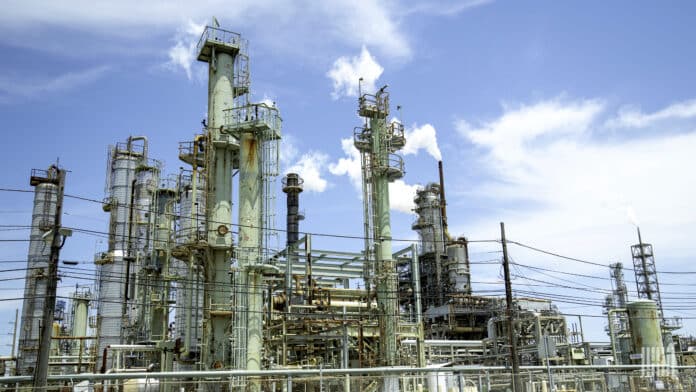As Nigerians struggle to survive amid the removal of fuel subsidy by the federal government, the House of Representatives ad hoc committee on the state of refineries in Nigeria says ex-president Muhammadu Buhari‘s administration spent N11.349 trillion to rehabilitate the country’s ‘dead’ refineries.
While the committee noted that the four refineries owned by the country are non-functional, unproductive and wasteful, a huge sum of about were spent to rehabilitate them.
The committee also accused the NNPC of obvious omissions, seeming duplications of projects and possible double payments.
The committee noted that the total estimated cost of rehabilitating the Nigerian refineries can be put at ₦11,349,583,186,313.40.
It also revealed that other additional actual costs reported in foreign currencies amounted to $592,976,050.00 and £4,877,068.47, and £3,455,656.93.
In its advice, the committee said the NNPCL should take full advantage of the Petroleum Industry Act 2021, passed by the National Assembly, to fast-track the rehabilitation programme of the refineries.
Speaking during his farewell national broadcast, Buhari said “Fellow Nigerians, you know how dear the desire in my heart is to rid the country of corrupt practices that had consistently diminished our efforts to be a great country. I did pursue this commitment relentlessly, in spite of the expected pushback. I am happy that considerable progress had been made in repatriating huge sums of money back to the country and had also taken over properties illegally acquired from our commonwealth.”
But BattaFiles reports that the administration witnessed rampant misappropriation and outright theft of humongous public funds.
While Nigeria is an oil-producing nation, it depends on imported refined petroleum products and the government has been subsidizing the cost for decades.
Nigeria budgeted 4.4 trillion naira ($9.5 billion) for the subsidies in 2022, far more than for education, health care and infrastructure combined.
President Bola Tinubu has, however, said the fuel subsidies are no longer economically sustainable with oil revenues dwindling amid chronic theft and decreasing foreign investment.
Although many Nigerians have knocked the government’s decision to withdraw the subsidy without incentives in place, especially at a time when many Nigerians already struggle to cope with record high unemployment and poverty.





